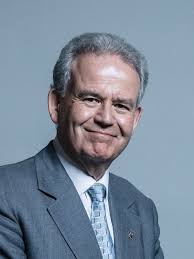Julian Lewis – 2023 Speech on Lifeboat Services – Search and Rescue
The speech made by Sir Julian Lewis, the Conservative MP for New Forest East, in Westminster Hall, the House of Commons, on 10 January 2023.
It is a privilege to take part in this debate, and our thanks are due to my hon. Friend the Member for Torbay (Kevin Foster) for making that possible.
We all come to an awareness of volunteer lifeboat crews in different ways. In my case, it was as a schoolboy growing up in Swansea. I remember in the 1950s visiting the Mumbles lifeboat and noting its unusual name. It was called the William Gammon, and it was in later years that I learned the reason for that. It was named after a particularly heroic coxswain of a previous lifeboat—a man who had been awarded a bronze and a gold medal for incredibly brave rescues in 1941 and 1944, but lost his life, together with seven colleagues in his crew, in the great disaster of 23 April 1947, when a former Liberty ship, the SS Samtampa, broke up off Sker Point off the coast of south Wales.
I remember going to the reference library on a research project and looking at the South Wales Evening Post report of that disaster. The headline—I think I am right in rendering it—said: “One terrible tragedy after another in the channel”. It showed the upturned lifeboat and the wrecked ship. That image has never left me. It is a tradition of which everybody who volunteers to serve in lifeboats is all too aware.
In those days, one had to go back to the newspapers to try to relive the experiences and heroism of the lifeboat crews, but today we have modern media. If colleagues on both sides of the Chamber take away only one thought from my brief contribution, it should be this: I urge them to go online and have a look at a BBC documentary called “Cruel Sea”. They can find it on YouTube. It was made in 2006 to mark the 25th anniversary of another disaster—the loss of the Penlee lifeboat. It is a quite extraordinary piece of television; they will never forget it, and I advise them to have a box of Kleenex tissues by their side. I have seen it several times, and I always find it hard to maintain my composure.
The documentary is about the way in which that crew and its coxswain, the late Trevelyan Richards, went out to try to rescue eight people on a vessel, the Union Star, whose engines had failed and was drifting toward the rocks. It contains the actual recordings of the messages that went back from the Penlee lifeboat to the command station, which tried to communicate with the boat. At one point—this was watched by a helicopter crew who were powerless to intervene but saw everything—the crew had managed to get four of the eight people off the ship. The waves were 60 foot high. The Penlee lifeboat was lifted up and actually came down on the deck of the ship it was trying to save the crew from, before being washed off. The crew went back one last time to try to get the last four people, and at that point they were lost.
The thought that remains with me is the calmness of the voice of Trevelyan Richards in moments of extreme peril, right up to the point at which the radio goes silent and we just hear the command station calling, “Penlee lifeboat, Penlee lifeboat, come in.” Of course, it never could. It is an unforgettable programme. It is a great tradition that, to this day, comes down to independent lifeboats such as Solent Rescue, which operates from Lepe in my constituency, and to RNLI stations such as RNLI Calshot. It operates with a 112-foot tower at Calshot Spit, with the aid of the National Coastwatch Institution, spotting the people who get into difficulties in the Solent. Frankly, these are the finest people we will ever know. I do not think I can say anything further than that.


